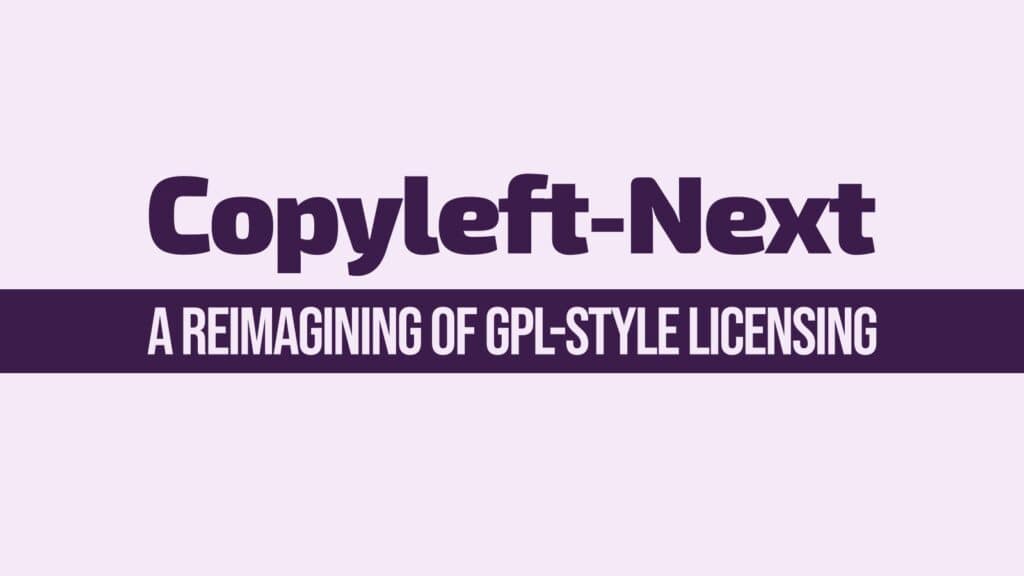The world of FOSS licensing is about to undergo a significant revival: the Copyleft-Next project is back in action, revitalized by its creators, Richard E. Fontana and Bradley M. Kuhn. After several months of discussions, they have officially announced their collaboration to relaunch the next generation of copyleft licensing.
If these names don’t ring a bell, know that they’ve been deeply involved in the FOSS world for a long time and have worked with several organizations that play an important role in the open source community.
Fontana is a former counsel at Red Hat and co-author of the GNU General Public License version 3 (GPLv3), along with Richard Stallman and Eben Moglen. Kuhn, a software freedom advocate and policy expert, is the Founding Executive Director of the Software Freedom Conservancy (SFC).
So, drawing insights from their past experiences on the GPLv3 Drafting Committees, the pair aims to build upon the lessons learned, leveraging both their successes and setbacks to craft an improved copyleft license.
Originally initiated by Fontana nearly 13 years ago as an experimental side project, Copyleft-Next is now reemerging as a professional and robust initiative. The project has received substantial backing from the SFC, securing infrastructural support and dedicated working hours.
Specifically, SFC will provide web hosting, mailing lists, and a Forgejo repository for the project, while Kuhn himself will devote at least four focused hours weekly.
Additional developments include the launch of a new website and a Mastodon instance for Fediverse communications. The newly established domain copyleft.org, generously donated by a volunteer years ago, now hosts the project’s various resources.
Fontana and Kuhn will share responsibilities equally as Co-Editors-in-Chief. They plan to uphold transparency through the Hindering Backchannels Rule, while also promptly introducing a more conventional Code of Conduct.
The immediate focus will be on community-building and revisiting fundamental questions, such as whether Copyleft-Next even needs a formal steward to succeed. Given the project’s emphasis on openness, these discussions will play out in public forums, inviting input from developers, legal experts, and FOSS advocates.
For more information, see the announcement.
Lastly, let me provide a brief explanation for our readers who may not be familiar with the various types of licenses in the FOSS world. A copyleft license is a type of open-source software license that ensures code remains free and open for everyone. It allows users to use, modify, and distribute the software, but requires that any modified versions be shared under the same license as well.
This approach, popularized by the GNU General Public License (GPL), helps preserve user freedoms and prevents proprietary forks by ensuring that improvements stay within the open-source ecosystem.
